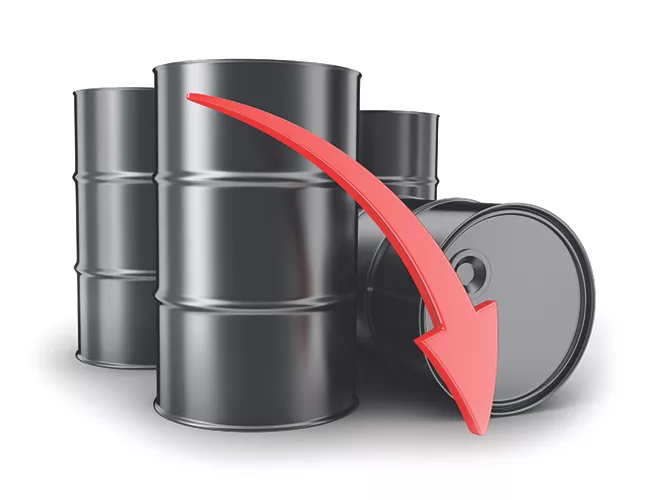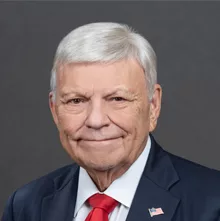By the time this article is published, the industry will be midway through the second quarter of 2024, with the oil markets being buffeted by worries about supply shortages and escalating geopolitical tensions.
Falling U.S. crude inventories, the Biden administration’s decision to postpone the refilling of the U.S. Strategic Oil Reserve, along with additional regulations on emissions, continue to raise concern for investors.
On the geopolitical front, additional concerns: a Ukrainian drone strike on one of Russia’s largest refineries, resulting in a significant reduction in the export of oil products; and the Israeli airstrike that killed two of Iran’s generals and five military advisors at its embassy in Damascus, raising the risk of further escalation in the Middle East.
Iran has pledged to retaliate against Israel for the airstrike, which is seen as a major escalation in the Israel-Hamas war. PVM Oil’s Tamas Varga warns that the potential for direct Iranian involvement in the Israel-Hamas war could spark a “region-wide conflict with plausible impact on oil supply.”
As of this writing, oil prices have escalated, predicated on these concerns, along with increased signs of U.S. economic growth, with WTI at $86.75/barrel and Brent at $91.03/barrel.
Additionally, Federal Reserve Chairman Jerome Powell is cautious about future interest rate cuts due to the recent data showing higher-than-expected job growth, thus adding to investors’ concerns.
Colorado Oil and Gas Legislation
On March 28, the Colorado Senate halted a bill to ban future oil and gas drilling in the state. Per John Egan of Industrial Info Resources, the Colorado Senate Committee on Agriculture and Natural Resources voted 5 to 2 to postpone further consideration of contentious bill SB24-159 that would ban new oil and gas drilling in the state after 2030. The measure would have also toughened environmental mitigation measures for oil and gas operations.
The oil and gas industry strongly opposes SB24-159, introduced by two Democratic senators. Standing with the industry were representatives of Colorado county governments, economic development groups, small business organizations, farmers, ranchers and other concerned individuals.
SB24-159 would have required the state to phase out issuing new oil and gas permits before Jan. 1, 2030, and prevent new permits for oil and gas after that date.
MCAA: Strong 2024
The annual MCAA Convention was held in Orlando, Fla., March 19-21, with the largest turnout in recent history. Mechanical contractors indicated that 2024 will be a strong year, with backlogs that were pushed into 2024 from 2023 and current contractual agreements.
The Midwest region indicated a softer market environment than other regions seem to be experiencing.
The industry is still having to contend with escalating costs of materials, supply chain disruptions and skilled labor shortages.
Mechanical contractors involved with the construction of data centers are experiencing long delays in securing power transformers and dealing with the availability of electric power generation to operate the new structures (especially in the East Coast corridor).
Although nonresidential construction spending was down by 1 percent in February, according to the data released by the U.S. Census Bureau on April 1, economists say the spending downturn may be temporary.
However, in my opinion, the data is a wake-up call to the industry and an indication that higher interest rates, the inflationary impact on material costs, labor shortages and increasing regulation have finally begun to make their mark regarding return on investments.
Projects
Electric vehicle (EV) maker Rivian, in response to declining demand, has delayed construction of its announced $5-billion manufacturing campus located in Stanton Springs, Ga. Rivian has not indicated when, and if, construction will resume.
The state of Georgia offered an incentive package worth $15 billion to build and operate the plant. Under the terms, the company has until the end of 2030 to invest at least $5 billion and create 7,500 full-time jobs.
EV battery maker AESC announced the second expansion of its facility currently under construction in Florence County, S.C., which will supply battery cells for the next-generation EVs produced by BMW at its Spartanburg, S.C., plant. The total investment by AESC in Florence County is expected to be more than $3.1 billion.
The expansion of the facility follows state approval to issue an additional $111 million in general economic development bonds to support the costs of a county-owned warehouse building, site preparation, on and off-site road and infrastructure improvements, and the expansion of the training center that serves both facilities.
The Tennessee Valley Authority (TVA) will begin the procurement process for a new 1.5 GW gas-fired power plant, estimated to cost $2.2 billion, announcing a final decision to retire the 70-year-old, nine-unit Kingston coal-fired plant.
In addition, the TVA will build 100 MW of battery storage and up to 4 MW of solar generation.
Natural gas for the facility will be supplied through a 122-mile natural-gas pipeline that must receive approval by the Federal Energy Regulatory Commission. TVA expects the new combined cycle units to be operational prior to the retirement of the Kingston facility in late 2027.
Supply Chains Remain Vulnerable
Pricing and the availability of commodity carbon-steel, butt-welding fittings and forged-steel flanges remain stable.
However, with tensions escalating in both the Pacific and the Mideast, shipping constraints at the Panama Canal, the collapse of the Francis Scott Key Bridge at the Port of Baltimore, problems with Chinese ownership at the Port of Los Angeles and Long Beach, Calif., supply chains remain vulnerable to disruptions and higher costs.
It is wise to remain in close contact with your manufacturer/supplier to avoid surprises regarding pricing and the availability of pipe, forged flanges, butt-welding fittings, valves and other PVF-related products.
This is the time for proactive action by supporting domestic manufacturers to ensure the availability of quality products on a timely basis.
PVF Roundtable News
The PVF Roundtable’s annual golf tournament was held May 13 at The Clubs of Kingwood in Kingwood, Texas. This is the most popular fundraising event of the year for the PVF Roundtable Charitable Foundation, drawing participants from all parts of the country.
The tournament was completely sold out soon after registration was announced.
The PVF Roundtable Golf Tournament and TroutBlast are the major fundraising events scheduled for 2024. The Weldbend Corp., Ferguson Industrial and MRC Global are key sponsors of these events.
The next Networking Meeting of the PVF Roundtable will be held Aug. 13, beginning at 4 p.m., at the Bayou City Event Center, 9401 Knight Rd., Houston, 281-501-6720.
As a member of the board of directors, and I speak for all members, we sincerely thank you for your participation in these events.
With the geopolitical uncertainties in the world today and the influence they have on the PVF market, these networking meetings are of the utmost importance for you and your associates. These events provide the platform to share information, discuss pertinent issues, meet new contacts, develop long-lasting friendships and pursue new opportunities in the industry.






